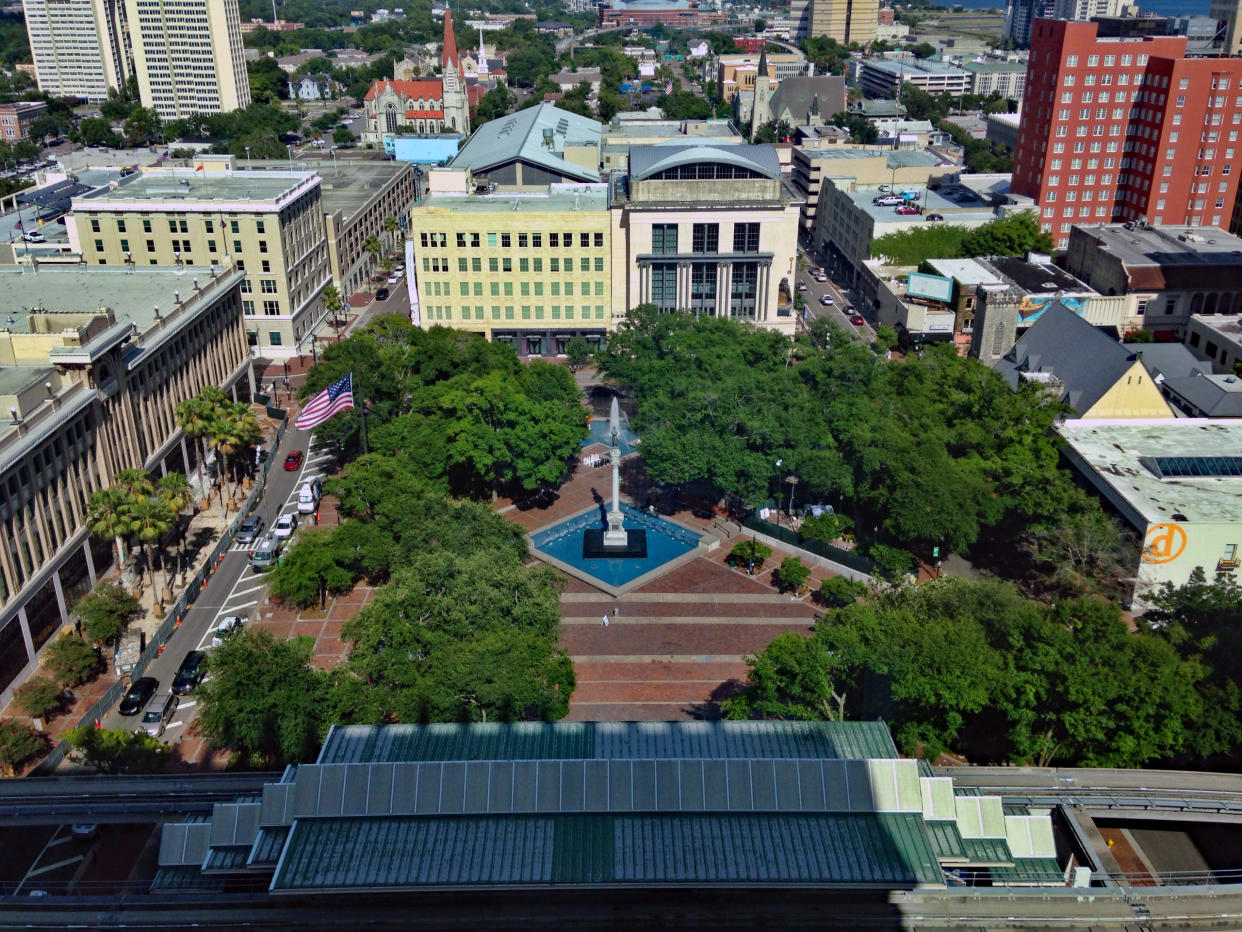Jacksonville reassesses Confederate monuments in Charlottesville's aftermath

Anna Lopez Brosche grew up in the Murray Hill neighborhood of Jacksonville, Fla. She loves and appreciates history, she said, but didn’t have strong feelings about the Confederate monuments and memorials throughout her hometown.
“I knew that they were a reflection of history. Did they elicit any of the very strong emotions that I’m seeing on both sides? The answer is no, they did not elicit that strong emotion in me,” Brosche told Yahoo News.
But the white nationalist “Unite the Right” rally around a statue of Robert E. Lee in Charlottesville, Va., pushed the continued existence of these monuments to the Confederacy to the front of a national conversation about U.S. history and racism.
Related slideshow: Violent clashes erupt at ‘Unite the Right’ rally in Charlottesville, Va. >>>
When white nationalists, including neo-Nazis and Ku Klux Klan members, descended on Charlottesville over the weekend, they violently clashed with others groups who were there to oppose them. A car driven into a crowd of counterprotesters killed Heather Heyer, 32.
Brosche, the president of Jacksonville’s city council, announced on Monday that she asked the parks and recreation department and the historic preservation section of their planning department to conduct an inventory of the Confederate monuments, memorials and markers throughout the 844 square miles of Duval County. (Jacksonville and Duval County have a consolidated city-county government.) She said this is the first step toward “respectfully removing” the controversial monuments and placing them in museums or educational institutions, where they can be preserved and contextualized in the city’s history.

She hopes this process will help in “honoring and preserving the history and what it means to some in the community, yet also removing them from our public parks and public property because not everyone receives them in that same light.” She added, “They are a symbol of hurt and pain for some in the community.”
Brosche, who is just beginning her third year in office, has broken through several glass ceilings: She is the first Asian-American elected to the Jacksonville City Council and the first Filipina-American city council member in Florida.
She said she was not sure whether any of her 18 colleagues were going to take action on the issue of Confederate monuments — so she did. So far it’s received a mixed reception among her colleagues and Mayor Lenny Curry has not yet given his opinion.
“With the events of Charlottesville and seeing what things mean — and I appreciate both perspectives, which are absolutely on opposite ends of the spectrum — I would just like to open up a dialogue,” Brosche said.

After a white supremacist murdered nine people at an African-American church in Charleston, S.C., in June 2015, prompting the removal of the Confederate flag from the state capitol, the Southern Poverty Law Center launched a project to catalog place names and symbols honoring the Confederacy in the South and across the country, identifying a total of 1,503. This includes 718 monuments and statues (nearly 300 are in Georgia, Virginia and North Carolina), 109 public schools, 80 counties and cities, nine Confederate holidays in six states and 10 U.S. military bases.
According to the SPLC, the argument that removing Confederate monuments is essentially “erasing history” ignores the heritage of African-Americans and trivializes their pain and concerns about racism in history and today.
Related slideshow: Confederate statue toppled in Durham, N.C.; others vandalized as cities consider removal of such monuments >>>
A new generation of neo-Nazis, who have rebranded themselves under the “alt-right” moniker, used websites like the Daily Stormer to organize the rally in Charlottesville to condemn the city’s decision to remove the statue dedicated to Lee.
The violence in Charlottesville, including the shocking video of a car fatally plowing into counterprotesters, prompted several cities and states to take proactive measures in removing their own Confederate statues. Since Charlottesville, Confederate soldier statues were taken down in Gainesville, Fla., and Durham, N.C., and Baltimore Mayor Catherine Pugh announced her plan to follow suit.

In Jacksonville, Brosche hopes her announcement will be just the first step in a long process of handling the Confederate legacy in her own city.
“This was just step No. 1 in a process, and this isn’t something that will happen quickly, in terms of legislation, nor do I think if it were to pass that it would happen quickly in terms of making a change,” Brosche said. “I don’t even understand the full scope of what’s out there in order to decide what happens. That’s why this is step one.”
Related video:


